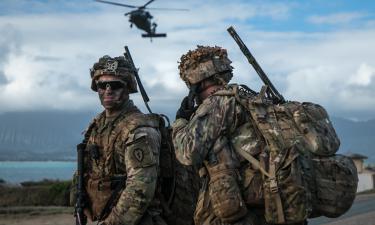21 century: Ship with 200 juvenile slaves aboard arrives in Africa
Government and aid agency officials in Benin are preparing to help up to 250 children who are believed to have been sold into slavery and are aboard a ship off the West African coast. The ship has been turned away by Gabon and Cameroon and officials say they expect it to return to Benin where reception centres are being set up. A Benin government minister, Gaston Zossu, told the BBC that action would be taken both against the crew of the ship and the parents who had sold their children. Correspondents say there is growing concern in West Africa over the illegal trade, but desperate poverty prompts parents to sell their children into servitude. Many are never seen or heard from again after being sent to other countries to work on plantations or as domestic servants, BBC reports. The children, from Benin and neighbouring Togo, left port three weeks ago. They are expected to dock in the Benin capital, Cotonou, by Saturday after a round trip of more than 2,000km (1,250 miles). A spokeswoman for the United Nations in Benin said that, where possible, the children would be reunited with their families. "There are centres which have been established in Benin to receive such children where they can be housed temporarily while we establish their identity," said Unicef's Estelle Guluman. Communications minister Mr Zossu said that the children were over 10 years old, mature enough to help the authorities locate their parents. BBC West Africa correspondent Mark Doyle says it remains unclear whether the slave ship, which is not being escorted by any naval enforcement vessels, will actually dock in Cotonou. He says the ship's crew may fear being arrested, so the safety of the children is still far from ensured. But Mr Zossu said that the crew might not be Beninese, and their fate would have to be discussed with neighbouring governments. Human rights activists say the selling of children into slavery is still quite common in impoverished Benin, although it is officially banned. They say parents are often tempted to sell their children for as little as $15 in the hope that they may find work in richer West African states, usually on cocoa and coffee plantations. Thousands of children between the ages of nine and 12 are thought to work on plantations in Ivory Coast, the world's top cocoa producer. Anti-child labour campaigners say they are forced to work long hours, and are frequently subjected to physical and sexual abuse. West and Central Africa have a long history of slavery. Between the 16th and 19th centuries, European slave traders shipped millions of the region's inhabitants to forced.
Subscribe to Pravda.Ru Telegram channel, Facebook, RSS!




